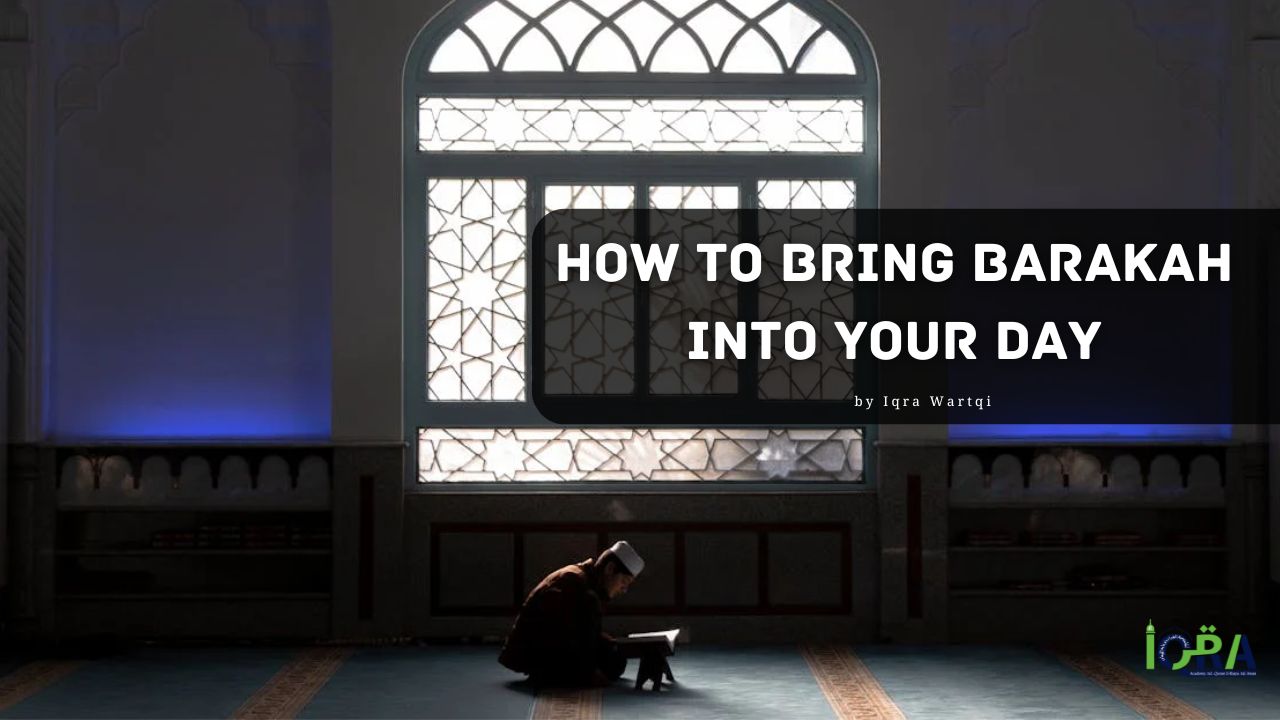Barakah (blessing) is a gift from Allah that brings abundance and goodness to your life, even in the simplest of things. Whether it’s time, wealth, health, or relationships, the presence of Barakah transforms the ordinary into extraordinary. But how do we bring Barakah into our daily lives? Let’s explore practical steps rooted in the Qur’an, Sunnah, and insights from Islamic scholars.
What is Barakah?
Barakah is more than just having “a lot” of something. It’s the divine increase in goodness and benefit, often beyond what seems logically possible. Allah reminds us of His ability to provide Barakah in the Qur’an:
“And if the people of the towns had believed and feared Allah, We would indeed have opened for them blessings from the heavens and the earth…” (Surah Al-A’raf: 96)
This verse highlights that true Barakah comes from faith and mindfulness of Allah (taqwa).
1. Start Your Day with Fajr and Dhikr
The Prophet Muhammad ﷺ said:
“The early morning has blessings for my Ummah.” (Tirmidhi)
Waking up for Fajr connects you with Allah at a time when the world is still and peaceful. After Salah, engage in morning dhikr like:
- SubhanAllah wa bihamdihi, SubhanAllahil azeem (Glory be to Allah and praise be to Him; Glory be to Allah, the Great).
- La ilaha illa Allah, wahdahu la sharika lahu (There is no deity except Allah, alone without partner).
This sets a blessed and focused tone for your day.
2. Be Grateful and Content
Allah says:
“If you are grateful, I will surely increase you [in favor]…” (Surah Ibrahim: 7)
Gratitude attracts Barakah. Reflect on the blessings you already have and thank Allah for them daily. Contentment with what Allah has provided brings peace to the heart and amplifies Barakah in what you possess.
3. Earn Halal and Spend Wisely
Barakah cannot coexist with haram earnings. The Prophet ﷺ said:
“Whoever earns unlawful wealth and then gives in charity, there is no reward for it, and it will be a source of sin for him.” (Ibn Majah)
Ensure your income is halal and spend it responsibly, prioritizing family needs and charitable causes.
4. Recite Surah Al-Baqarah Regularly
The Prophet ﷺ said:
“Recite Surah Al-Baqarah, for taking recourse to it is a blessing, abandoning it is a cause of grief, and the magicians cannot confront it.” (Muslim)
Reciting or listening to Surah Al-Baqarah brings blessings into your home and protects you from evil influences.
5. Engage in Charity and Helping Others
The Prophet ﷺ said:
“Charity does not decrease wealth.” (Muslim)
When you give for the sake of Allah, He replaces it with more, often in ways you cannot imagine. Even a small act, like sharing food or assisting someone in need, invites Barakah into your wealth and time.
6. Maintain Good Relations with Family and Community
The Prophet ﷺ said:
“Whoever wishes to have his provision expanded and his life prolonged should maintain good ties with his relatives.” (Bukhari)
Strengthening family ties and contributing positively to your community fosters Barakah in both your worldly and spiritual affairs.
7. Stay Connected to the Qur’an
The Qur’an is a source of eternal Barakah. Reading, understanding, and implementing its guidance illuminates your heart and life. Allah describes the Qur’an as:
“A blessed Book which We have revealed to you, that they might reflect upon its verses and that those of understanding would be reminded.” (Surah Sad: 29)
Dedicate time each day to recite and reflect upon the Qur’an, even if it’s just a few verses.
8. Make Du’a for Barakah
The Prophet ﷺ taught us specific du’as to ask for Barakah, such as:
“O Allah, bless my Ummah in their early mornings.”
Don’t hesitate to ask Allah for blessings in all aspects of your life. He loves to hear and answer the du’a of His servants.
Final Thoughts
Barakah is not about the quantity of what you have but the quality and satisfaction that Allah places in it. By aligning your actions with the teachings of Islam, staying mindful of Allah, and serving others, you invite divine blessings into your life.
May Allah grant us all Barakah in our time, health, wealth, and families. Ameen.
